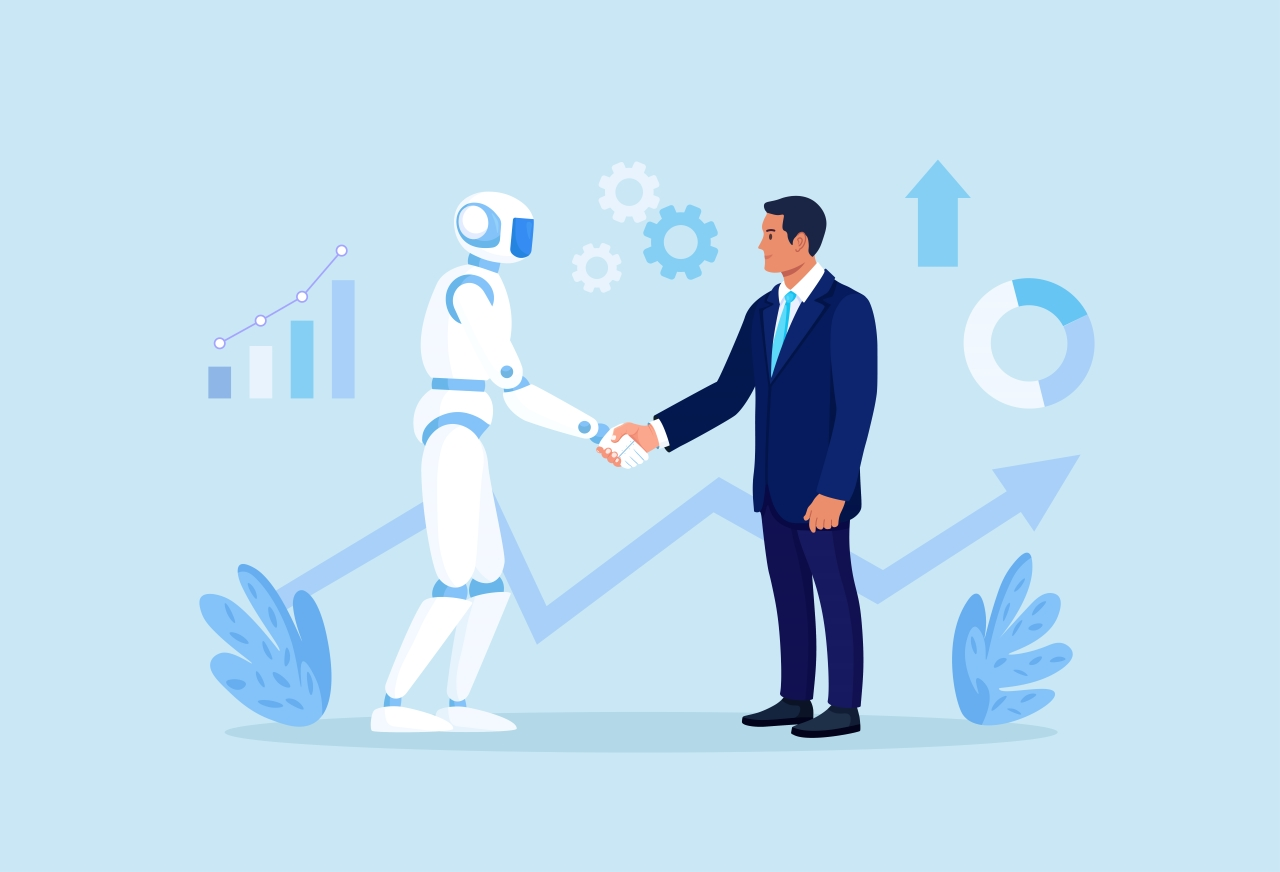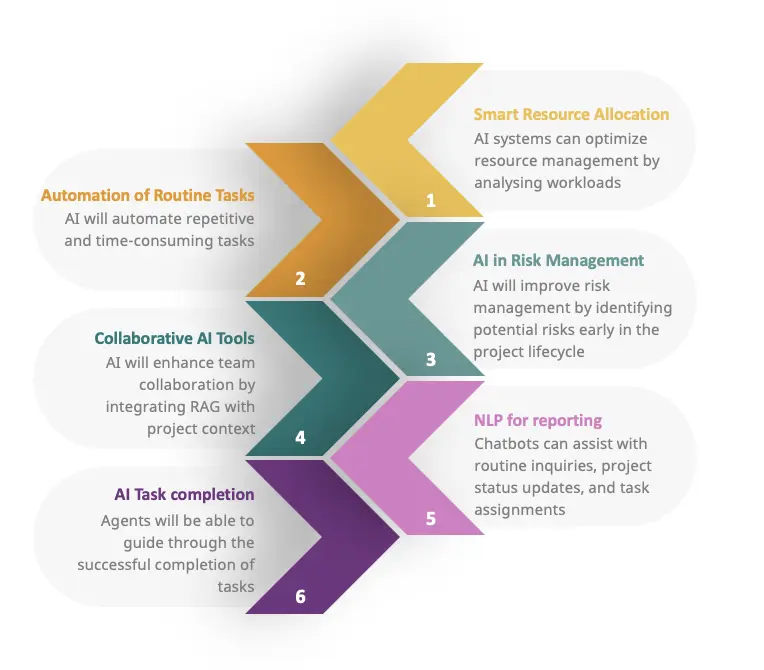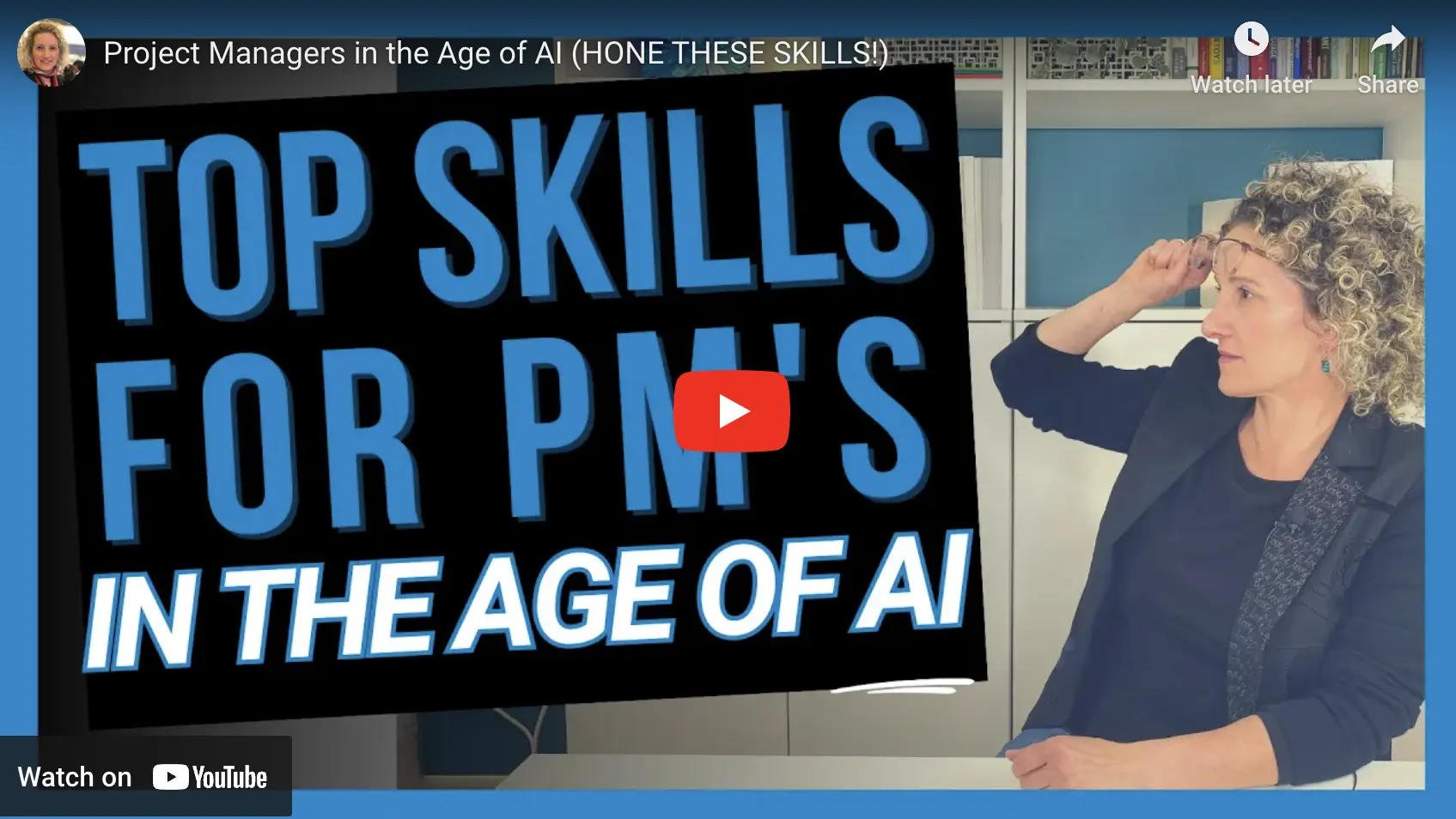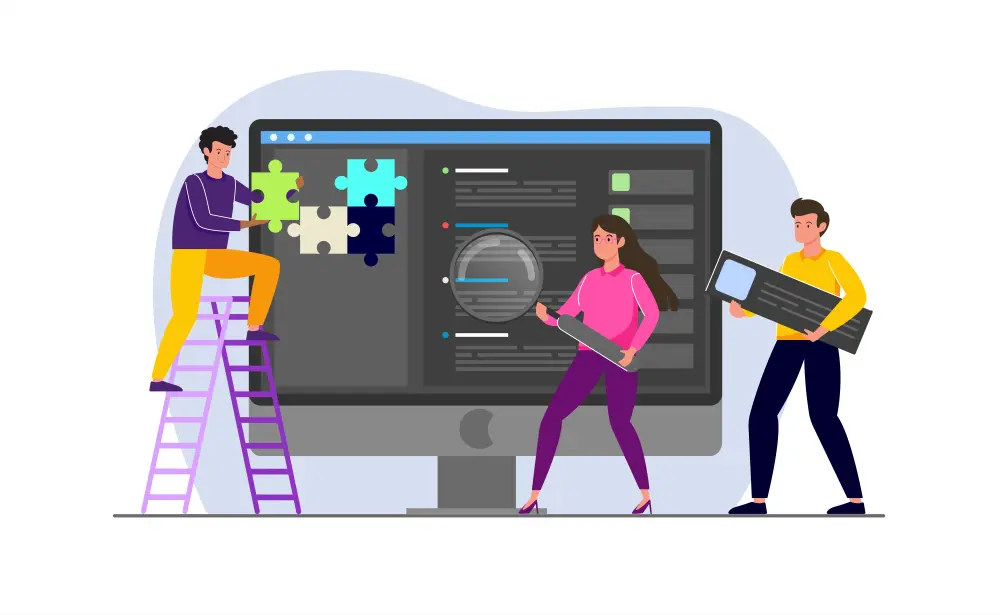Revolutionizing Project Management: The Power of AI
February 26, 2024 4:30 min

Introduction
Take a moment to think about how much project management has evolved over the years. We’ve gone from simple task lists scribbled on paper to sophisticated software that orchestrates massive, complex projects. Now, Artificial Intelligence (AI) is stepping into the spotlight and transforming the way we manage projects like never before. This is a game-changer, especially for startup founders and project managers aged 30 to 50 who are striving to stay ahead of the curve. So, let's dive into how AI is revolutionizing project management.
Understanding AI in Project Management
What is AI Anyway?
Artificial Intelligence refers to computer systems designed to perform tasks that usually require human intelligence. These tasks include decision-making, speech recognition, and visual perception. In project management, AI shows up in technologies like machine learning and natural language processing, streamlining processes and providing deeper insights into project data.
AI Technologies in Project Management
You’ve probably seen—or even used—AI technologies without realizing it. Machine learning, a subset of AI, learns from historical data to predict future outcomes, while natural language processing helps AI understand human language, making communication and data processing significantly smoother. These tools seamlessly integrate into traditional project management software like Jira or Asana, bringing a whole new level of efficiency.
The Benefits of AI in Project Management
Enhanced Decision Making
Imagine making decisions backed by concrete data rather than feelings or guesswork. AI analyzes vast datasets to uncover patterns you might never spot on your own. This means you can make smarter, faster decisions that drive your projects forward. According to a study by McKinsey, AI-driven tools can boost decision-making accuracy by up to 33% (source: McKinsey).
Improved Efficiency and Productivity
How many times have you felt bogged down by repetitive tasks? AI can take over those mundane activities, freeing you up to focus on high-impact tasks. Automation tools streamline everything from scheduling to resource allocation, ensuring that your team works most efficiently.
Predictive Analytics for Risk Management
AI doesn't just help you understand what's happening now—it predicts what could happen next. By analyzing project data, AI tools can foresee potential project risks and recommend proactive strategies to mitigate them. This significantly reduces the chances of project delays and cost overruns.
Data-Driven Insights and Reporting
Real-time insights and comprehensive reports become easily accessible through AI. Rather than spending hours compiling reports, AI tools can automatically generate them, providing you with the data you need to track progress and make informed decisions.
Challenges and Considerations
Implementation Challenges
Sure, AI sounds fantastic, but adopting it isn't always a walk in the park. Initial costs, the complexity of integration, and the learning curve can pose challenges. Organizations must be prepared to invest time and resources in training and development for a seamless transition.
Ethical and Privacy Concerns
With AI, data privacy and ethical considerations come into play. AI algorithms often require large datasets, which can raise red flags around data security and privacy. It's crucial for organizations to establish clear policies and practices to govern the ethical use of AI.
Future Trends in AI and Project Management
AI is set to play an increasingly transformative role in project management (PM), streamlining processes, improving decision-making, and increasing efficiency. Here are some emerging trends where AI is expected to impact PM:

- AI-Powered Predictive Analytics AI-driven predictive analytics can forecast potential project risks, delays, and resource bottlenecks. By analyzing past data, AI can predict trends and project outcomes, enabling managers to make proactive decisions. For example, AI can suggest timeline adjustments or resource reallocation to avoid overruns.
- Automation of Routine Tasks AI will automate repetitive and time-consuming tasks like scheduling, tracking progress, updating project status, and generating reports. This allows project managers to focus on higher-level strategic tasks, improving productivity and project outcomes.
- Natural Language Processing (NLP) for Communication and Reporting AI tools with NLP capabilities can streamline communications by analyzing and summarizing project updates, emails, and reports. Chatbots can assist with routine inquiries, project status updates, and task assignments, improving internal and client communication.
- Smart Resource Allocation AI systems can optimize resource management by analyzing workloads, employee skills, and availability to assign the right team members to the right tasks. This ensures efficient use of resources and balanced workloads across teams.
- Enhanced Decision-Making through AI-Driven Insights AI tools can analyze vast amounts of project data in real time and deliver actionable insights to project managers. These insights can help in making informed decisions faster, based on accurate and up-to-date information. Predictive analytics, powered by AI, can guide decisions on timelines, risks, and budgets.
- AI in Risk Management AI will improve risk management by identifying potential risks early in the project lifecycle. AI can monitor various aspects of the project, like budget, timeline, and resource usage, to flag anomalies and suggest corrective actions. This ensures that risks are mitigated before they escalate.
- Project Planning with AI Assistants AI-powered tools will assist in project planning by offering intelligent suggestions for timelines, resource allocation, and task breakdowns based on historical data and industry benchmarks. AI can also assist with real-time scenario analysis to evaluate the impact of different decisions or delays.
- Collaborative AI Tools AI will enhance team collaboration by integrating with tools like Slack, Microsoft Teams, and Trello. AI assistants can manage and automate project-related communications, sending reminders, assigning tasks, and tracking project milestones. They will also facilitate real-time updates and automated notifications to team members.
- Emotional Intelligence and AI-Driven Leadership AI is being used to gauge team morale and engagement. By analyzing communication patterns, feedback, and project data, AI can provide insights into team dynamics and suggest strategies to improve collaboration and leadership approaches.
- AI and Agile Methodologies AI will complement Agile project management by making sprint planning more efficient, forecasting task completion times, and providing real-time feedback on project velocity. AI tools will help teams adapt quickly to changes by automating aspects of backlog prioritization and sprint goal-setting.
- Blockchain Integration with AI The combination of AI and blockchain in project management will enhance transparency and security. Blockchain can offer an immutable record of project timelines, budgets, and deliverables, while AI ensures accuracy in analysis and compliance.
- AI-Based Virtual Project Managers In the future, we may see the rise of AI-based virtual project managers who can autonomously oversee low-complexity projects. These AI-driven systems will manage day-to-day operations, monitor progress, assign tasks, and ensure adherence to project timelines.
This section brings us to an insightful video that explores the impact of AI on project management. If you're concerned about how AI might reshape your role, especially the soft skills that AI can't replicate, this video by Adriana Girdler is a must-watch.

How to Get Started with AI in Project Management
Assessing Your Needs
Before integrating AI, it's important to understand where it can provide the most value in your projects. Evaluate your current processes, identify bottlenecks, and determine your organization's AI readiness.
Selecting the Right Tools
The market is flooded with AI tools, each offering different functionalities. Choose tools that align with your project goals. Reputable platforms like Smartsheet or Trello offer AI integrations tailored to specific project needs.
Training and Development
Successful AI integration depends heavily on skill development. Invest in training your team to effectively use AI tools. This not only ensures a smooth transition but also maximizes the benefits derived from AI.
Conclusion
AI is more than just a buzzword—it's transforming project management as we know it. From enhancing decision-making to predicting risks, AI provides enormous opportunities for improving project outcomes. Embrace AI, and don't just be a spectator—be a pioneer in integrating AI into your projects.

